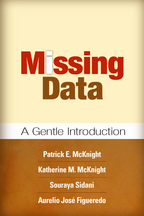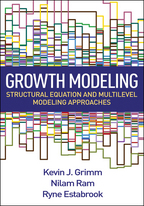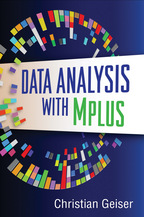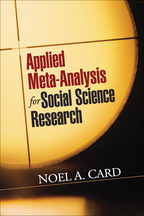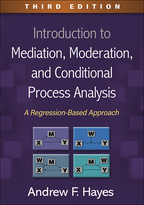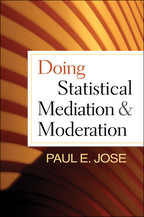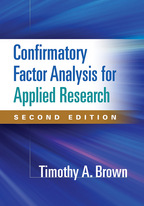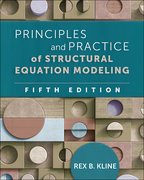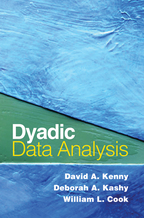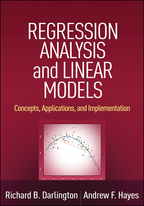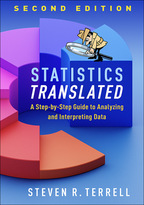Missing Data
A Gentle Introduction
Patrick E. McKnight, Katherine M. McKnight, Souraya Sidani, and Aurelio José Figueredo
HardcoverPaperbacke-bookprint + e-book
Hardcover
orderMarch 27, 2007
ISBN 9781593853945
Price: $81.00 251 Pages
Size: 6" x 9"
Paperback
orderMarch 28, 2007
ISBN 9781593853938
Price: $54.00251 Pages
Size: 6" x 9"
Read the Series Editor’s Note by founding editor David A. Kenny
“The authors present a comprehensive discussion of missing data in a nontechnical fashion that will not intimidate those who lack an extensive mathematical background....The book discusses missing data at an introductory level, focusing on how missing data affects scientific research, how it can be prevented or minimized throughout a study, and how it can be appropriately accounted for in the statistical analysis and study conclusions.”

—American Statistician
“Provides a comprehensive and nuanced discussion of the complexities and variety of solutions. It also offers approaches to reduce the likelihood of obtaining missing data by considering research procedures or design. This book serves as one of the better introductions to this topic for students and will be useful for others seeking a more general overview of approaches for missing data....This book is unique in addressing not only the statistical issues but also in its coverage on preventing the occurrence of missing data as research is planned or conducted, and how missing data should be presented in publications....A very good introduction....Provides some insightful connections between research designs used in psychology or social studies and missing data patterns.”

—PsycCRITIQUES
“The information in this book is practical, judicious, and empirically sound. The authors have managed to compile a very useful book on an often repressed topic among researchers. For students, this is a worthwhile introduction that manages to avoid being too technical. Yet, there are very functional suggestions both in terms of study design and the handling of missing data that would be useful for seasoned researchers. Weighted Numerical Score: 97 - 5 Stars!”

—Doody's Review Service
“This book is full of useful information about methodological and statistical issues related to missing data. It includes clear definitions of types of missing data, ways to reduce their negative effects, and analytical strategies for maximizing the use of all data—even partial data—collected in a research study. A unique strength of the book is its focus on missing data as a threat to the validity of a study's conclusions. Unlike other sources on missing data analysis, design approaches for preventing missing data are emphasized. More advanced statistical approaches to missing data analysis are also described clearly. This is a valuable, practical resource.”

—David MacKinnon, PhD, Department of Psychology, Arizona State University
“This very important, interesting, and well-written book addresses a serious problem in contemporary social science research. Statisticians have made considerable progress in developing methodologies for dealing with missing data. However, these methods are not well known to social science researchers or to many graduate students in the behavioral sciences. This book systematically explores methods for classification, diagnosis, and prevention of missing data problems. It provides step-by-step instructions for analyzing data sets with some observations missing; reviews imputation methods; and advises investigators on how to report on analyses when some participants have been lost to follow-up. This is an excellent book that will help behavioral science investigators handle analytical problems for virtually every study they conduct.”

—Robert M. Kaplan, PhD, Regenstrief Distinguished Fellow, Purdue University; Professor of Medicine and Director of Research, Clinical Excellence Research Center, Stanford University
—American Statistician
“Provides a comprehensive and nuanced discussion of the complexities and variety of solutions. It also offers approaches to reduce the likelihood of obtaining missing data by considering research procedures or design. This book serves as one of the better introductions to this topic for students and will be useful for others seeking a more general overview of approaches for missing data....This book is unique in addressing not only the statistical issues but also in its coverage on preventing the occurrence of missing data as research is planned or conducted, and how missing data should be presented in publications....A very good introduction....Provides some insightful connections between research designs used in psychology or social studies and missing data patterns.”
—PsycCRITIQUES
“The information in this book is practical, judicious, and empirically sound. The authors have managed to compile a very useful book on an often repressed topic among researchers. For students, this is a worthwhile introduction that manages to avoid being too technical. Yet, there are very functional suggestions both in terms of study design and the handling of missing data that would be useful for seasoned researchers. Weighted Numerical Score: 97 - 5 Stars!”
—Doody's Review Service
“This book is full of useful information about methodological and statistical issues related to missing data. It includes clear definitions of types of missing data, ways to reduce their negative effects, and analytical strategies for maximizing the use of all data—even partial data—collected in a research study. A unique strength of the book is its focus on missing data as a threat to the validity of a study's conclusions. Unlike other sources on missing data analysis, design approaches for preventing missing data are emphasized. More advanced statistical approaches to missing data analysis are also described clearly. This is a valuable, practical resource.”
—David MacKinnon, PhD, Department of Psychology, Arizona State University
“This very important, interesting, and well-written book addresses a serious problem in contemporary social science research. Statisticians have made considerable progress in developing methodologies for dealing with missing data. However, these methods are not well known to social science researchers or to many graduate students in the behavioral sciences. This book systematically explores methods for classification, diagnosis, and prevention of missing data problems. It provides step-by-step instructions for analyzing data sets with some observations missing; reviews imputation methods; and advises investigators on how to report on analyses when some participants have been lost to follow-up. This is an excellent book that will help behavioral science investigators handle analytical problems for virtually every study they conduct.”
—Robert M. Kaplan, PhD, Regenstrief Distinguished Fellow, Purdue University; Professor of Medicine and Director of Research, Clinical Excellence Research Center, Stanford University

